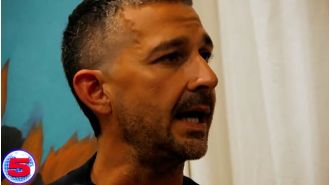Company plans to utilize railway system to move eco-friendly energy sources
Trains transport fossil fuels for electricity, but could they also carry renewable energy-generated electrons to power the grid?

As freight trains criss-cross the vast expanse of our country, they carry essential resources such as coal, oil, and natural gas to power plants that keep our electric grid running. But what if these trains could also transport another valuable resource – electrons generated by renewable energy sources? This was the question that Christopher Smith, a seasoned professional in the renewable energy industry, found himself pondering while hiking in Alaska. As he watched a train pass by, he had an epiphany – freight trains could play a crucial role in delivering renewable power from remote locations to areas where electricity is needed.
Fast forward four years, and Smith, along with fellow green-tech entrepreneur Jeff Anderson, are now pursuing a first-of-its-kind pilot project in Colorado. They believe that trains can help overcome transmission bottlenecks by transporting large batteries to existing coal or natural gas plants, where the stored energy can be distributed to the grid. Their company, SunTrain, based in San Francisco, has partnered with Xcel Energy, Colorado's largest electric utility, and the National Renewable Energy Laboratory (NREL) in Golden, to apply for a $10 million federal grant to further develop this technology. If all goes well and state regulators give their approval, the pilot project could be up and running in just four years, according to Anderson, SunTrain's CEO.
Anderson and Smith both recognize that the lack of transmission capacity on the grid is hindering the expansion of renewable energy sources and the transition away from fossil fuels. In fact, a recent report by the U.S. Department of Energy, in collaboration with NREL and the Pacific Northwest National Laboratory, stated that the nation's transmission system will need to double in size by 2050 to meet the growing demand for clean energy. Smith explains, "Right now, the majority of green energy projects are built around transmission access. But over the past 20 years, all the easy access to transmission lines has been taken up."
As someone who has worked closely with the International Brotherhood of Electrical Workers (IBEW), Smith has seen firsthand how projects have fallen through due to a lack of grid access. This led him to consider alternative ways of bringing electrons to the market and delivering them to consumers. The U.S. freight train system covers a staggering 140,000 miles, with much of it passing through remote areas where wind farms and large solar arrays are often located. This makes trains a natural fit for transporting renewable energy resources.
Moreover, trains and railways are specifically designed to handle heavy loads that would be too much for trucks. SunTrain's batteries, made of lithium-iron-phosphate, weigh 120 tons each. The company estimates that the train carrying these high-capacity batteries would consist of 80 to 100 cars. Smith also notes that their batteries contain less than 6% lithium, compared to other batteries that can contain up to 60% lithium. This significantly reduces the risk of explosions, fires, and environmental hazards in case of a derailment.
SunTrain has found that railway companies are open to the idea of transporting power from renewable sources. Smith adds that hauling fossil fuels used to be a major source of revenue for these companies, but it now makes up a smaller portion of their business. In fact, members of the IBEW and the National Electrical Contractor's Association showed their support for SunTrain's pilot project, called the Wireless Alternative by Train Transport (WATT), at a news conference in Denver on December 4th. Governor Jared Polis also wrote a letter to federal agencies, endorsing SunTrain's grant application, stating, "This provides an immediate, alternative connection between renewable energy generation and load, bypassing the congested transmission system."
According to Anderson, SunTrain's technology could potentially reduce the use of natural gas for electricity at Xcel Energy's Cherokee Generating Station in Denver. The company estimates that the pilot project will cost around $125 million, and they are currently raising funds, including from venture funds. Anderson remains optimistic, stating, "If the grant doesn't come through, then we will have to get creative and find other ways to raise the necessary funds." With the support of government agencies, industry professionals, and the general public, SunTrain's innovative project could be the start of a new era in clean energy transportation.










